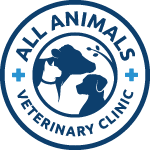How long is a cow pregnant?
On average, a cow is pregnant for about 283 days or 9.3 months.
What are the signs of a cow in labor?
Signs of a cow in labor are that she'll start to separate herself from the herd, almost a nesting behavior. The muscles around her tail head will start to relax and then her udder will begin to fill with milk.
What do I do if my cow goes into labor?
If your cow goes into labor, we recommend monitoring them closely every one to two hours to see if they're having trouble. If it seems like they're having trouble after one hour that they're trying to push and nothing is progressing, then we recommend calling the veterinarian.
Do cows need help giving birth?
Not always. The majority of cattle will go through a normal birthing process completely by themselves. But if they do need help, then there are ways to intervene.
How big is a calf when they're born?
On average, calves can usually be about 70 to 80 pounds and sometimes they are smaller, but sometimes they can be bigger.
What does a healthy calf look like?
Usually a healthy calf is born and they start breathing as soon as they're on the ground. And then usually within the first hour they're going to want to stand and suckle from their mother.
What are the signs of an unhealthy calf?
An unhealthy calf will usually have trouble breathing and not want to stand or nurse.
How do you know if a cow birth is successful?
A successful cow birth will mean that the placenta comes out of the mother with the calf and that she doesn't have any pain or problems afterwards, no abnormal vaginal discharge, and that the calf is up and suckling within one to two hours.
What are the signs of a miscarriage in cattle?
Signs of a miscarriage, if early on in the pregnancy, can almost be non-existent. You might not see them. But if it's a little bit later in pregnancy, you may find a dead fetus or you may see some brown or bloody discharge from the cow.
Can a calf walk when it's born?
Of course, they're actually supposed to. That's the best way. Cattle themselves are a prey species, so out in the wild they want to get up and move as much as they can.
If you still have other questions and you'd like to reach out to us, you can call us directly at (765) 482-7387, or you can email us at [email protected]. But please do reach out, and we'll get back to you as fast as we can. Don't forget to follow us on social media Facebook, Instagram
